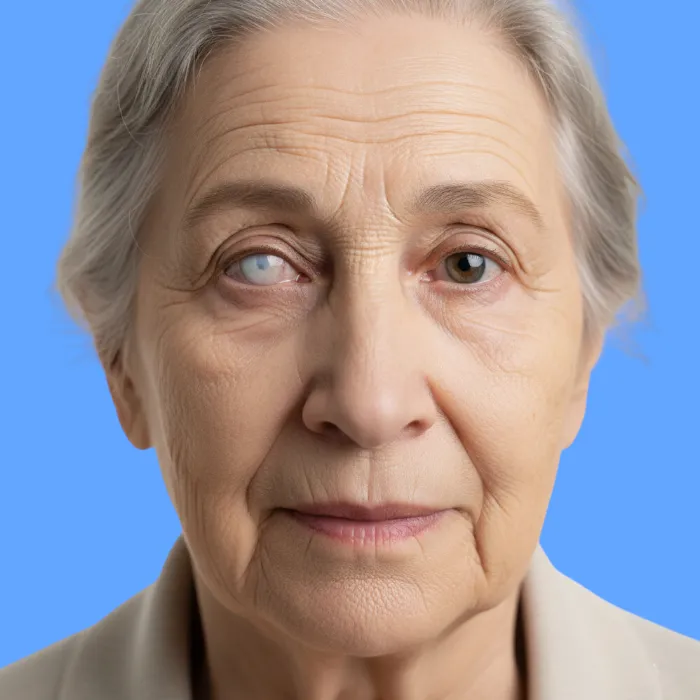what are cataracts?
Cataracts, medically known as lens opacity, are a condition that affects the clarity of the lens inside the eye, leading to gradual vision blurring.
The transparent lens begins to cloud, as if you're looking through foggy glass, causing the eye to lose its ability to focus light naturally onto the retina.
what are the causes of cataracts?
There are several common causes of this condition, including:
- Aging and protein buildup inside the lens.
- Genetic or congenital factors from birth.
- Diabetes or high blood pressure.
- Prolonged exposure to ultraviolet rays.
- Long-term use of corticosteroid medications.
- Smoking or unhealthy lifestyle habits.
- Previous eye injuries or surgeries.
what are the common symptoms of cataracts?

There are several common symptoms that patients may experience, including:
- Blurry or unclear vision.
- Increased sensitivity to light and glare.
- Difficulty seeing at night.
- Changes in color perception.
- Double vision in one eye.
- Frequent need to change glasses.
- Halos around lights.
- Gradual decline in reading or driving ability.
when should you see a doctor?
It is advised to consult a doctor promptly if any of the following occur:
- Sudden or worsening blurry vision.
- Difficulty performing daily activities due to poor eyesight.
- Disturbing halos or light flashes.
- Frequent changes in eyeglass prescription.
- Eye pain or discomfort.
- Loss of color recognition.
- Symptoms appearing in only one eye.
- Family history of cataracts.
what are the treatment options for cataracts?
There are several treatment options for the condition, including:
- Prescription glasses to temporarily improve vision.
- Contact lenses to correct refractive errors.
- Surgery to remove the cloudy lens and replace it with an artificial one.
- Phaco technique to break up and implant the lens.
- Laser treatment in advanced cases.
- Regular follow-up with an eye specialist.
- Adhering to post-operative instructions.
can cataracts be cured?
Yes, cataracts can be fully cured in most cases.
Recovery speed depends on the type of surgery, the patient's age, and how well they follow medical instructions after the procedure.
what are the prevention tips for cataracts?
There are several tips to help prevent the condition, including:
- Wearing sunglasses that block ultraviolet rays.
- Quitting smoking completely.
- Controlling blood sugar and pressure levels.
- Eating foods rich in antioxidants.
- Avoiding harmful medications without consultation.
- Regular eye checkups.
- Maintaining a healthy lifestyle.
- Avoiding direct exposure to bright light.
what are the possible complications of cataracts?
Some complications may occur if treatment is neglected, such as:
- Severe vision loss that may lead to blindness.
- Increased eye pressure (glaucoma).
- Retinal detachment in rare cases.
- Difficulty recognizing faces or driving.
- Negative impact on daily life quality.
- Need for urgent surgical intervention.
- Permanent changes in the eye lens.
- Post-surgery complications if instructions are not followed.
frequently asked questions about cataracts
Do cataracts affect both eyes?
Yes, they often affect both eyes but to varying degrees.
Can cataracts return after surgery?
No, but cloudiness may appear behind the implanted lens and can be treated with laser.
Do cataracts affect children?
Yes, in rare congenital or genetic cases.
Do cataracts cause eye pain?
Usually no, but mild discomfort may occur.
article summary
Cataracts are a common condition that affects the clarity of the eye lens and causes gradual vision blurring.Its causes vary from aging and genetics to chronic diseases, and it can be successfully treated with surgery.
Regular eye checkups and preventive measures are recommended to avoid complications and restore clear vision.